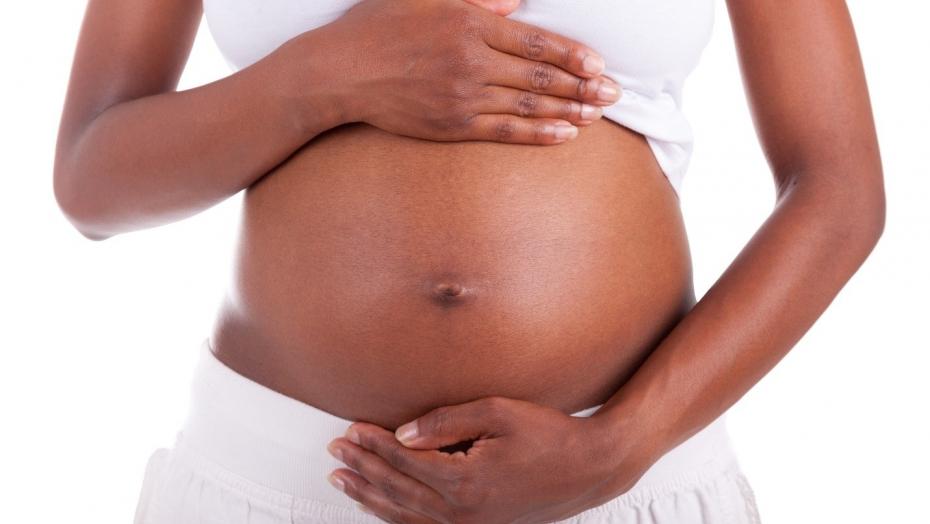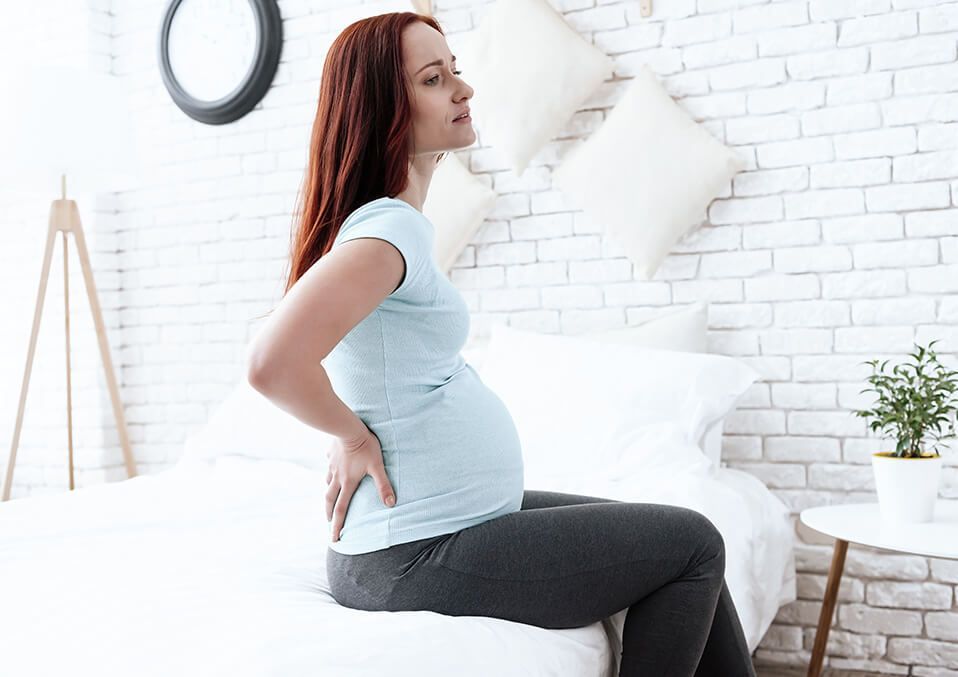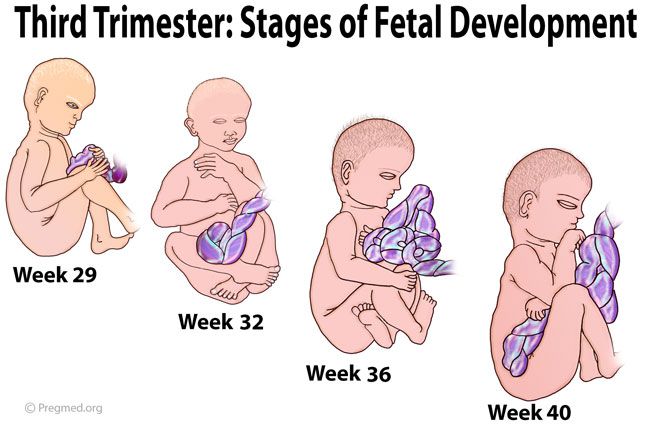Good things to drink while pregnant
What Should You Drink During Pregnancy?
When you’re pregnant, you have to make many changes, including what you eat and drink. It’s important to be aware of what you should (or shouldn’t) be consuming during pregnancy to ensure the safety and health of your baby. Pregnant women must drink more fluids than those who are not expecting, especially during the summer when the weather is hot.
It’s fair to wonder just which drinks are safe to consume during pregnancy. Obviously, you should avoid alcoholic beverages as even drinking them in moderation raises your baby’s risk for fetal alcohol syndrome. However, while some drinks are questionable, they can safely be consumed during pregnancy. You may not have to give up your favorite drinks like you might think.
WaterWater is the single most important drink you should have throughout your pregnancy. You should drink at least six eight-ounce glasses of water per day, in general, but when you are pregnant, you should have at least one extra glass each day. If you were a big water drinker before you became pregnant, it can be very beneficial for both you and your baby as you will regularly be sipping.
Orange juice is good to drink while you’re pregnant, but you should only have it when it is pasteurized and fortified with calcium. This is especially good to consume if you have high blood pressure or your obstetrician has told you that you are at risk for it—also known as preeclampsia—during your pregnancy. Orange juice contains potassium, which can help lower your blood pressure. However, avoid orange juice or any other type of fruit juice that’s raw or freshly squeezed during pregnancy because these can be unsafe.
TeaCertain herbal teas can be consumed during pregnancy. However, it’s important to note that not all are safe and that some can actually be toxic. Rooibos tea is caffeine-free and rich in antioxidants while peppermint and ginger tea can help soothe the symptoms of morning sickness. You can also drink green tea but only in moderation while pregnant as it tends to have caffeine. However, there are some decaffeinated green teas you can buy, such as those sold at health food stores.
You can also drink green tea but only in moderation while pregnant as it tends to have caffeine. However, there are some decaffeinated green teas you can buy, such as those sold at health food stores.
Pregnant women are frequently told they can’t consume coffee due to the caffeine content. However, it’s safe to drink in moderation as long as your caffeine intake is limited to 200 milligrams per day. Instant coffee tends to have less caffeine than ground, so you may want to switch to that during pregnancy if you must have your daily cup of joe.
These drinks are generally safe to have during pregnancy. However, always speak with your doctor to confirm what’s best to consume to ensure the safety of your baby.
Do you have more questions about maternity care in Salem Oregon? Contact our friendly staff at WFMC Health or become a new patient today!
Filed Under: Maternity Health Care
WFMC
Top 14 Drinks for Pregnant Women + What Drinks To Avoid – Surely Non-Alcoholic Wine
If you’re newly pregnant you may be finding that there’s a lot of info out there as far as what you can drink, what you shouldn’t, and what you might be able to drink in moderation.
Outside of beverages you may already know to avoid — alcohol, excess caffeine, and raw milk can all be harmful to your developing baby — it can be a challenge to know what healthy drinks are okay.
What is the most important thing to know about drinks while pregnant? Pregnant women need to know that whatever they’re choosing to put into their bodies isn’t just to keep them healthy, but their babies, too.
So what drinks are safe during pregnancy? Water, milk, and herbal teas are all excellent drinks to keep you and your baby safe during pregnancy.
Part of your plan to stay hydrated can include drinks just for fun, too, as long as you’re staying away from those listed no-nos. That can mean non-alcoholic wine as an alternative to that after-dinner glass you may be missing.
Our rosé at Surely is made to taste like the real thing because it starts off just like the real thing. We’ve just removed the alcohol content for you.
We’ve just removed the alcohol content for you.
It all starts with water, though.
Table of Contents
Water
Milk
Herbal Tea
Alcohol-Removed Wine
Flavored Water
Decaf Coffee
Sparkling Water
Vegetable Juice
Kefir
Sports Drinks with Electrolytes
Fruit Juice
Broth
Smoothies
Coconut Water
6 Drinks That Pregnant Women Should Avoid
Table of Contents
Water
Milk
Herbal Tea
Alcohol-Removed Wine
Flavored Water
Decaf Coffee
Sparkling Water
Vegetable Juice
Kefir
Sports Drinks with Electrolytes
Fruit Juice
Broth
Smoothies
Coconut Water
6 Drinks That Pregnant Women Should Avoid
1. Water
Water should be your go-to beverage during pregnancy. Add an extra glass to your usual water intake — that should be at least six to eight 8-ounce glasses per day — to keep not only yourself well-hydrated, but your baby, too.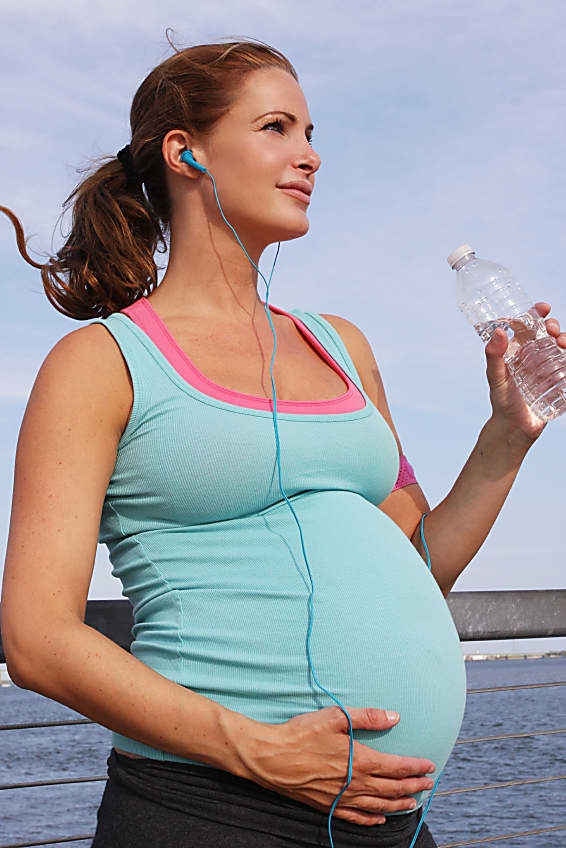
What are the health benefits of drinking water while pregnant? Water helps your body absorb important nutrients that you’re getting from prenatal vitamins and that baby-friendly diet you’ve started.
You’ll feel better drinking more water, too, as it can help reduce, even prevent, unwelcome byproducts of pregnancy, like cramps, fatigue and urinary tract infections.
2. Milk
Dairy milk is a healthy option for pregnant women, particularly toward the end of a pregnancy when the baby’s bones are forming. It’s full of calcium and protein, and can be lower in fat if you go for skim or low-fat milk.
Just make sure the milk you’re drinking is pasteurized. You shouldn’t have a problem with this at most chain grocery stores in the United States, but it isn’t a bad idea to check labels if you’re in a specialty market or visiting an organic dairy.
The pasteurization process kills off harmful bacteria like Listeria and E. Coli.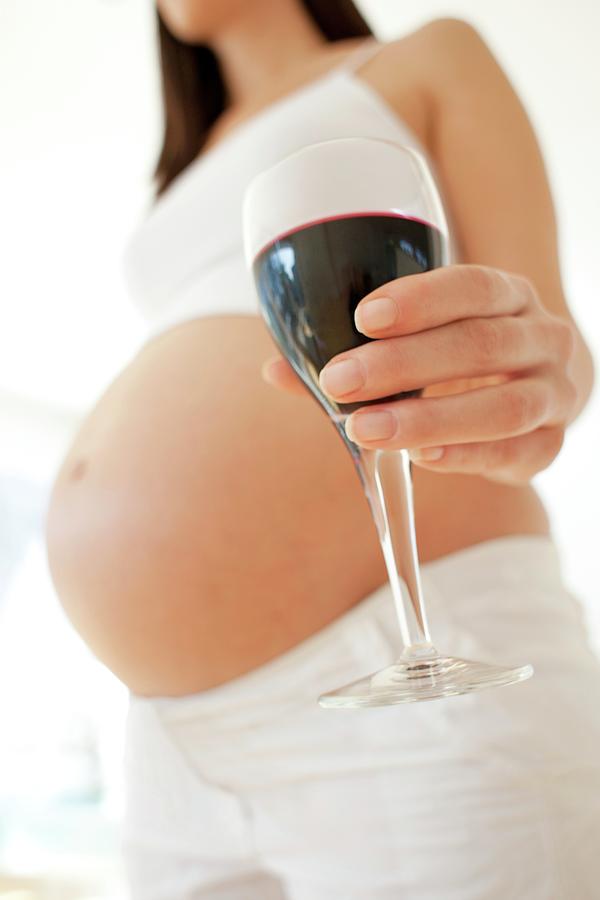
If you’re lactose intolerant, seek out non-dairy alternatives that are fortified with calcium for a similar benefit. Soy milk is usually a safe bet, with more protein than many of the others. Yes, part of being pregnant is getting really good at reading labels.
3. Herbal Tea
Herbal tea is not true tea. True tea (green tea, black tea, oolong tea, etc.) contains caffeine, which is not safe for pregnant women, except in strict moderation.
Green tea lovers, you’ll need to cut back in favor of herbal options, especially if you’re used to getting more than the recommended amount of caffeine from multiple steamy cups of tea.
What can I drink instead of coffee when pregnant? You won’t need to abandon the comforts of an afternoon tea when pregnant, as long as it’s the herbal kind. As you’re cutting back on the caffeine, look for caffeine-free options.
What drink is good for preventing morning sickness? Ginger, lemon balm, and peppermint teas have been known to lessen morning sickness symptoms, and raspberry teas can give you an antioxidant boost.
Just stick to what’s commercially-available, as you may not be able to confirm ingredients in loose-leaf varieties.
4. Alcohol-Removed Wine
Alcohol-removed wine is a non-alcoholic alternative for people avoiding alcohol for one reason or another.
You might have read all about whether there are safe levels of drinking while pregnant. However, no amount of alcohol has been proven safe, and there is no safe time to drink alcohol while pregnant. Even one glass of wine might be dangerous for the healthcare of your growing baby.
What are the risks of drinking alcohol while pregnant? Birth defects, premature birth, and any number of disorders on the fetal alcohol spectrum are all possible risks of drinking alcohol while pregnant.
That doesn’t mean you have to give up on all of the nice things.
Non-alcoholic beer and alcohol-removed wines, like Surely’s non-alcoholic rosé and sparkling white, have come a long way in resembling the real thing. This way, you can have your sips knowing you’re making a safe choice.
This way, you can have your sips knowing you’re making a safe choice.
While there are trace amounts of alcohol in our delicious rosé, it’s well below the 0.5% threshold required by the Food and Drug Administration to be labeled non-alcoholic. To keep things in perspective, you’ll find the same amount of alcohol in kombucha and many fruit juices because of natural fermentation.
5. Flavored Water
Bored of water? Try flavored water!
Adding a little flavor to your h3O can go a long way toward increasing your water intake. Mint, berries, cucumber, watermelon and citrus can all make a glass of water even more refreshing.
Just make sure to thoroughly wash anything you’re dropping into your glass.
Fun fact on citrus: Sniffing lemons or sipping on some lemonade can ease your nausea symptoms, so throw a wedge or two into your water bottle before you head out if you’re not feeling so hot.
6. Decaf Coffee
Lay off the caffeine. Decaf coffee may still satisfy your need for a cup of joe, though.
For a healthy pregnancy, doctors recommend no more than 200 milligrams of coffee per day, which is about one regular-strength cup of coffee.
Decaffeinated coffee is even better, as long as you’re not crossing over that threshold of recommended caffeine per day. Even decaf contains small amounts of caffeine.
In large amounts, the caffeine in coffee and other caffeinated beverages can cause a rapid heart in your baby as it passes through the placenta.
While it’ll still be metabolized, this process takes up to three times as long in an unborn baby. There’s just not enough information out there about what that means long term to make guzzling pots of coffee worth it.
7. Sparkling Water
Sparkling water or seltzers are fine in moderation when pregnant — and a great alternative to sugary soft drinks. You’ll just want to avoid bubbly drinks with added caffeine or artificial sweeteners, often found in diet soda.
Sparkling water can also be a great base for mocktails, which are elevated takes on those kiddie cocktails from your youth.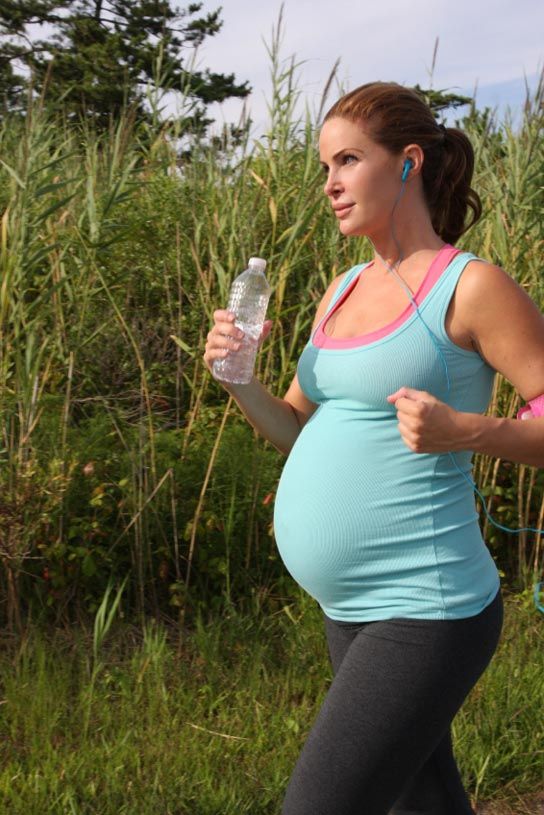
Consider DIY recipes that will give you a nutrition boost on top of the novelty of your non-alcoholic drinks, like antioxidant-rich berry garnishes or a little freshly-grated ginger to knock out any nausea.
8. Vegetable Juice
Pasteurized vegetable juices are a low-sugar alternative to fruit juices. Juices made out of beets and carrots are naturally a little bit sweeter than other green veggies, so they’ll better mimic those fruit juice flavors you may be craving.
Beet juice also has the added benefit of lowering blood pressure in some pregnant women, but you should talk to your obstetrician about your diet plan if you’re at risk or already suffering from high blood pressure.
Making your own veggie juice is a great idea so you can control any additives in commercial brands. Just make sure any vegetables you’re using are properly washed, and that you’re drinking your juice right after it’s blended.
9. Kefir
Kefir is a pasteurized, fermented milk drink rich in probiotics that can be beneficial during pregnancy in preventing preeclampsia and other complications.
The consistency is a bit thicker than the usual smoothie so you may find it hard to hit your daily hydration goals with kefir, but it’s a positive addition to any healthy diet.
10. Sports Drinks with Electrolytes
Sports drinks with electrolytes like Gatorade or Powerade are a good way to replace some key nutrients you may be missing, on top of keeping you hydrated.
They can also help with nausea from morning sickness or leg cramps, a common complaint of pregnant women after the first trimester.
Just make sure you’re enjoying sports drinks in moderation, as they’re often high on the added sugar.
Avoid energy drinks altogether since they pack more of a caffeine punch than that cup of coffee you’re allowed once a day. (And they usually contain even more sugar.)
11. Fruit Juice
A little bit goes a long way when it comes to fruit juice, especially if you’re buying it at the store. It’s fine to have all-fruit juice in moderation during pregnancy, but it shouldn’t be your main hydration source due to its high sugar content.
What is the best juice to drink while pregnant? You can safely drink a variety of all-fruit juices while pregnant, but if you’re buying a bottle at the store, make sure it’s pasteurized by checking the label.
Pasteurized orange juice is a good option, especially if it includes added calcium on top of a vitamin C and potassium boost.
Blending your own fresh fruit juice is also a good option, as long as you’re thoroughly washing the fruits before tossing them into your blender. Drink any fresh juices within a day or two of making them.
12. Broth
It doesn’t get much more comforting than soup, and sometimes a hot bowl of broth is just what you need when you’re not feeling like yourself. If you want the added benefit of ginger for nausea symptoms, try a ginger tumeric bone broth.
It’s best to stick to low-sodium varieties of chicken broth or miso, and avoid heavy, cream-based soups. You aren’t getting much hydration from that bowl of chowder.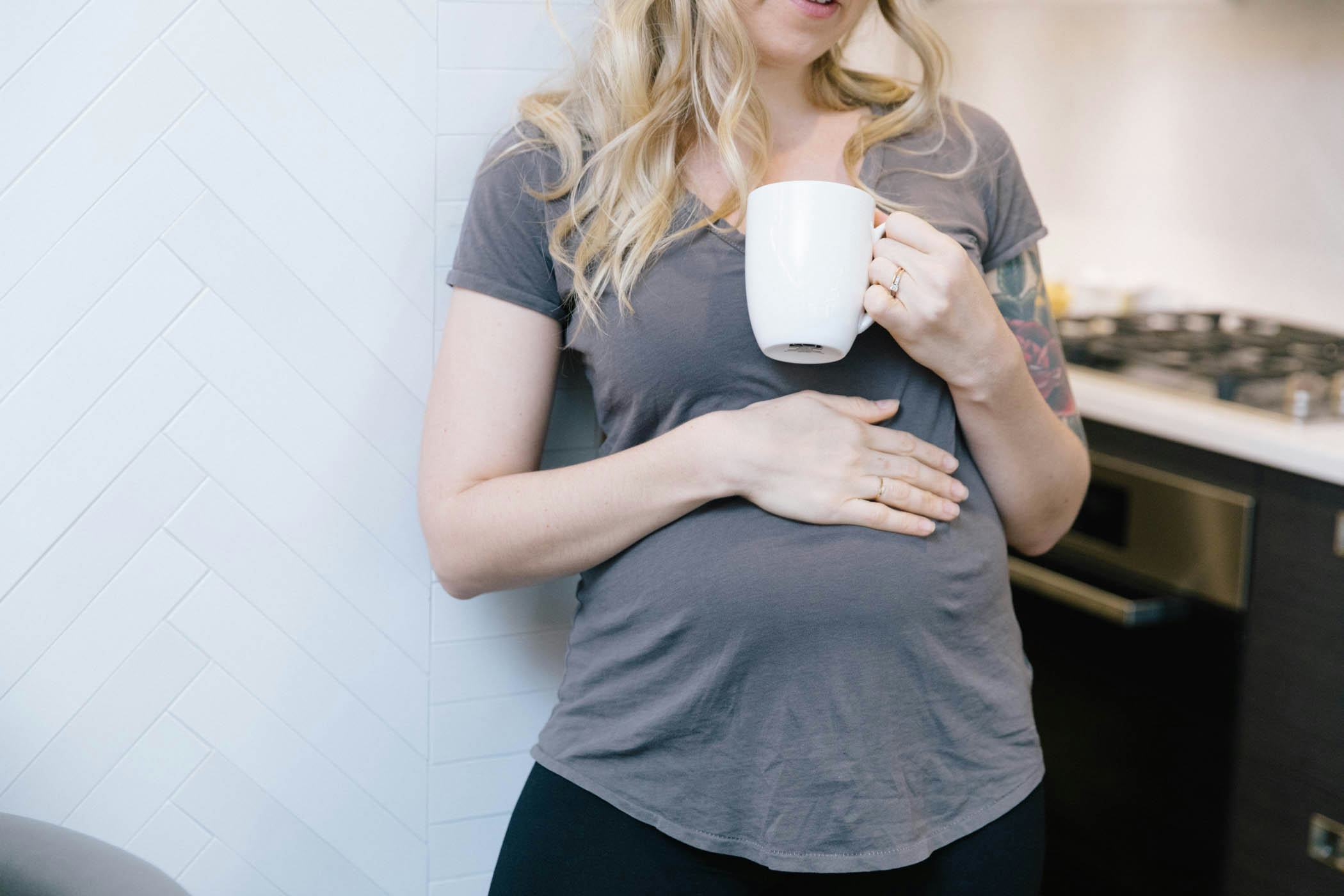
13. Smoothies
If you’re on a healthy eating plan already, yummy green smoothies might already kick off your day. It’s fine to keep that up during pregnancy, especially if you want to bump up your consumption of fruits and veggies.
As with your fruit juices, you’ll want to wash anything you’re blending thoroughly beforehand. Try to avoid adding sugar into the mix, as you’ll be getting enough natural sugar from the fruits you’re using.
If you’re going store-bought, just make sure you’re buying smoothies from pasteurized juices.
14. Coconut Water
Coconut water is more similar to sports drinks than flavored waters, if you’re looking at the electrolytes per ounce. This is a good way to curb nausea if you prefer the taste of coconut water to Gatorade, as long as you’re sipping it in moderation.
Coconut water is higher in sodium than many of your other hydration options. Keep this in mind when arranging your overall diet.
6 Drinks That Pregnant Women Should Avoid
What drinks should be avoided during pregnancy? Here are 6 drink to avoid during pregnancy:
- Alcohol
- Unpasteurized milk
- Unpasteurized juices
- Caffeinated beverages
- Sugary sodas
- Drinks with artificial sweeteners, like diet soda
Outside of water, which should be your primary source for hydration throughout your pregnancy, you have options for what you choose to sip to boost your healthy beverage intake. If you want to get a little creative, you can enjoy a glass of alcohol-removed wine.
If you want to get a little creative, you can enjoy a glass of alcohol-removed wine.
If you feel unsure about your options and want more feedback, always talk to your doctor first.
Sources
- Impact of Fetal Alcohol Exposure on Body Systems: A Systematic Review
- Pregnancy-induced Changes in the Pharmacokinetics of Caffeine and Its Metabolites
- Timing of Probiotic Milk Consumption During Pregnancy and Effects on the Incidence of Preeclampsia and Preterm Delivery: A Prospective Observational Cohort Study in Norway
What you can and cannot drink during pregnancy
If you are lucky and you are in a family of fans of a healthy lifestyle, then most likely you will be offered green or fruit tea, and if coffee, then necessarily natural, less often they offer juices from packages .
What should a pregnant woman choose from this list? To the disappointment of many women, during this period some of the usual drinks are not recommended for them, and a number of drinks should be significantly limited.
Drinks to limit
Coffee - contains caffeine. Moreover, in a cup of instant coffee it is even more than in a cup of natural. Plus, instant coffee contains chemicals that make it soluble. Regular consumption of more than 5-6 cups of coffee per day is the same drug addiction as with cigarettes. The use of any drug during pregnancy, even as innocent as coffee, will inevitably lead to the same addiction in the child later.
This is why coffee consumption during pregnancy should be reduced and kept to a minimum. However, in small quantities (1 coffee cup of natural coffee per day), you can drink it. Not regularly, but in those cases when you really want it, or when a cup of natural coffee replaces the medicine for low blood pressure.
Tea - also contains caffeine, and in a cup of strong brewed tea, it contains no less than in a cup of coffee. Therefore, a pregnant woman needs to drink it very diluted, which usually affects the taste of the drink.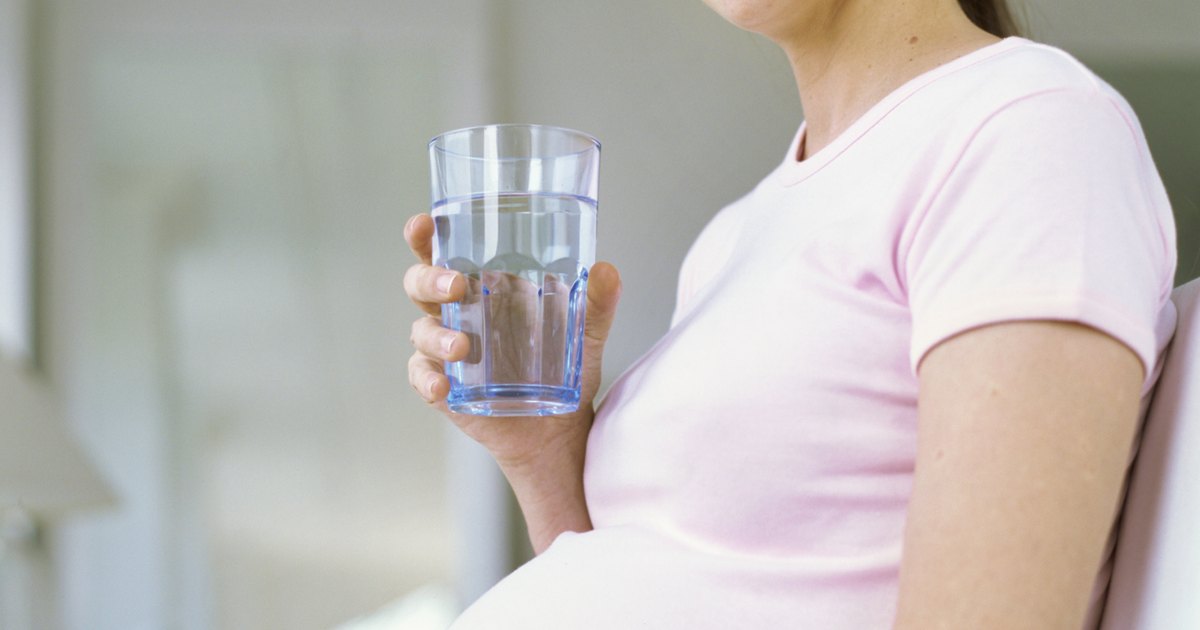 Many prefer not to drink tea at all than to drink it in this form.
Many prefer not to drink tea at all than to drink it in this form.
Some mistakenly believe that replacing black tea with green tea will result in less caffeine. This opinion is wrong. A cup of green tea contains just as much caffeine as black tea, so the same restrictions apply. On the other hand, green tea is rich in microelements and bioactive substances, so if a pregnant woman drinks tea, then green is better than black, but do not forget about its strength.
Fruit tea, which has become fashionable in recent times, can be divided into ordinary tea with fruit additives, and pure fruit or herbal tea. Of course, such tea is healthier than ordinary tea if it is brewed directly from dried leaves and fruits, and not from bags. However, we should not forget that tea with fruit and herbal additives remains the same tea, and we again have to remember about its strength.
Cocoa is a fairly strong allergen, cocoa allergy is much more common than coffee or citrus fruits. In addition, cocoa (like coffee) helps to flush out calcium from the body.
In addition, cocoa (like coffee) helps to flush out calcium from the body.
Carbonated water - promotes excessive gas formation, flatulence. Sugary carbonated drinks, such as Coca-Cola, contain a lot of synthetic chemicals, the use of which is not recommended for everyone, especially pregnant women. In addition, cola and other drinks interfere with the absorption of calcium. Mineral water without gas is rich in mineral salts and can be a serious burden on the kidneys of a pregnant woman, especially if she periodically finds salts in her urine or has a tendency to edema.
Juices - of course, much more useful. However, it is more correct to drink freshly squeezed juices, and not from packages. The latter do not always contain safe and harmless substances: companies often add vitamins, flavor enhancers, preservatives, etc. to their juices. In addition, many of them contain a large amount of sugar. If you already choose among juices in packages, you should give preference to those that are intended for baby food.
What can you drink?
What can a pregnant woman drink to quench her thirst? During pregnancy it is better to learn how to quench your thirst with pure water . Spring water (tested by experts), bottled water, and just filtered boiled water will do.
This is of particular relevance in the second half of pregnancy, when the activation of water-salt metabolism and an increase in the total volume of circulating fluid can lead to increased thirst. During pregnancy, you should drink as much as you need, unless fluid intake is limited by your doctor. If a pregnant woman gets used to constantly carrying water with her and drinking it in small sips at first desire, thirst attacks manifest themselves much less frequently.
Pure water should be the main and main drink for a pregnant woman and make up at least 2/3 of all fluid entering the body.
What to drink besides water:
- First, natural juices and fruit drinks .
 Freshly squeezed juice should be preferred over packaged juice. In winter, it is better to use a fruit drink made from homemade preparations. Fruit drinks can be prepared from jam, jam, compote, dry and frozen fruits. These drinks are rich in vitamins and minerals.
Freshly squeezed juice should be preferred over packaged juice. In winter, it is better to use a fruit drink made from homemade preparations. Fruit drinks can be prepared from jam, jam, compote, dry and frozen fruits. These drinks are rich in vitamins and minerals. - Second, herbal teas . However, it is better not to use ready-made bags, but to prepare tea directly from dry herbs, leaves, flowers, dried fruits, brewing them like tea, at the rate of 1 teaspoon per cup of boiling water. Any herb that does not have a strong smell and unpleasant taste, and does not act on the endocrine system, is suitable for brewing. It is also good to use raw materials from those plants that grow in the same area where the pregnant woman herself lives. In central Russia, such teas are most often brewed from the leaves of raspberries, strawberries, currants, cherries, blueberries, lingonberries, mint herbs, lemon balm, Ivan tea, linden flowers, calendula, violets, rose hips, hawthorn, mountain ash, viburnum, etc.
 d.
d.
It is especially important during pregnancy not to mix herbs together so that you can only drink the teas you really like without masking the unpleasant taste. The sensitive body of a pregnant woman will immediately tell you which plant you don’t want to drink now and what you should give up for a while. If there are no unpleasant sensations, then it is advisable to drink such tea for 2-3 days, then take a break for 1-2 days, and then brew some other plant.
Large selection
By alternating teas in this way, we will get a fairly large set of drinks that will be repeated no more than once a month. This simple recipe from the piggy bank of folk experience will help pregnant women deal with a lack of vitamins and minerals. If the main part of a pregnant woman's drink is pure water, juices, fruit drinks and herbal teas, then sometimes she will be able to treat herself to a cup of coffee and other not very healthy, but more beloved drink. In this case, temporary restrictions in the choice of drink will not be so difficult for her.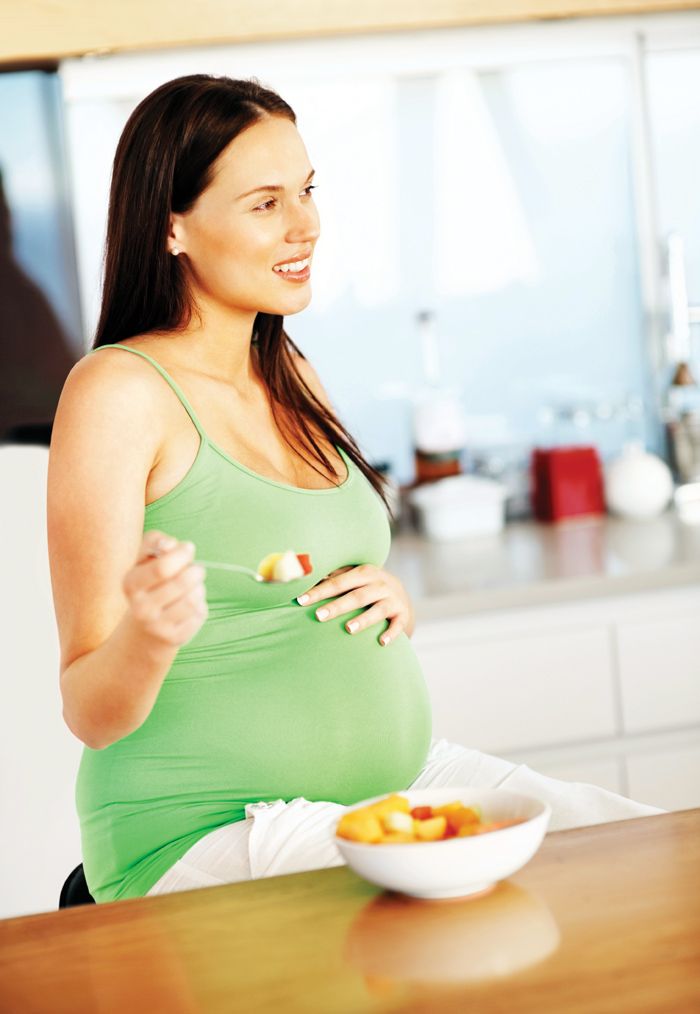
References
- You AH., Kang HY., Kim Y. The 95% effective target concentration of propofol for drug-induced sleep endoscopy in males with obstructive sleep apnea. // J Clin Anesth - 2021 - Vol72 - NNULL - p.110312; PMID:332
- Paim AAO., Lopes-Ribeiro Á., Daian E Silva DSO., Andrade LAF., Moraes TFS., Barbosa-Stancioli EF., da Fonseca FG., Coelho-Dos-Reis JG. Will a little change do you good? A putative role of polymorphisms in COVID-19. // Immunol Lett - 2021 - Vol - NNULL - p.; PMID:33
0
- Theisen KM., Soubra A., Grove S., Vanni AJ., Erickson BA., Breyer BN., Myers JB., Voelzke B., Broghammer JA., Rourke KF., Alsikafi NF., Buckley JC., Peterson AC., Elliott Sp. Association Between Ejaculatory Dysfunction and Post-Void Dribbling After Urethroplasty. // Urology - 2021 - Vol - NNULL - p.; PMID:330
- No authors found Retraction. // J Cell Biochem - 2021 - Vol122 - N6 - p.691; PMID:331
- Frame NR. A cataract, 'a million cut' radial keratotomy, and Marfan syndrome February consultation #1.
 // J Cataract Refract Surg - 2021 - Vol47 - N2 - p.273; PMID:339
// J Cataract Refract Surg - 2021 - Vol47 - N2 - p.273; PMID:339 - Moshirfar M. Bilateral reticular haze and scar involving central cornea. // J Cataract Refract Surg - 2021 - Vol47 - N4 - p.552-555; PMID:336
- Samuelson TW., Liaboe C. Management of hypotony-related maculopathy after combined phacoemulsification and trabeculectomy: January consultation #1. // J Cataract Refract Surg - 2021 - Vol47 - N1 - p.130; PMID:33
2
- Teng Z., Shi Y., Peng Y., Zhang H., Luo X., Lun X., Xia L., You Y., Li Z., Zhang W., Zhang Y., Dong S., Guo W., Kan B., Pang B., Xu J., Qin A. Severe Case of Rickettsiosis Identified by Metagenomic Sequencing, China. // Emerg Infect Dis - 2021 - Vol27 - N5 - p.1530-1532; PMID:336
- Luo N., Wang S., Lu J., Ouyang X., You L. Collective colony growth is optimized by branching pattern formation in Pseudomonas aeruginosa. // Mol Syst Biol - 2021 - Vol17 - N4 - p.e10089; PMID:331
- Martel ML., Driver BE.
 , Miner JR., Biros MH., Cole JB. In Reply: In Fact, One Size (or Dose) Does Not Fit All. // Acad Emerg Med - 2021 - Vol - NNULL - p.; PMID:33899989
, Miner JR., Biros MH., Cole JB. In Reply: In Fact, One Size (or Dose) Does Not Fit All. // Acad Emerg Med - 2021 - Vol - NNULL - p.; PMID:33899989
Vitamins and pregnancy - articles from the specialists of the clinic "Mother and Child"
Albitskaya Elena Vladimirovna
Ultrasound doctor
Clinical hospital Lapino-1 "Mother and Child"
One of the most frequent questions that pregnant women ask their doctor is what vitamins should be taken during pregnancy? Let's say right away whether expectant mothers need to drink pharmaceutical vitamins or not - there is no unequivocal answer to this question. Some doctors believe that the necessary nutrients should be obtained from natural products. Others are in favor of taking pharmaceutical multivitamins. It can only be said unequivocally that vitamins and microelements must necessarily enter the body of a pregnant woman. We will tell you which of them are most important for the expectant mother.
Folic acid
Other names for this vitamin are vitamin B 9 or B c . This vitamin is necessary for cell division and reproduction, so it is especially important in the first trimester of pregnancy, when all organs and systems of the child are being laid. Folic acid plays an important role in the synthesis of hemoglobin, and with its deficiency, anemia can develop. And folic acid also helps to reduce the likelihood of spinal defects in a child, takes care of the correct formation of his psyche and intellect. It is better to start taking folic acid three months before the planned conception, since a small supply of this vitamin will only be useful for both the expectant mother and the baby. If the pregnancy has come unplanned, then folic acid must be taken as soon as the woman finds out about her situation. On average, the dosage of this vitamin is from 0.4 to 0.8 mg per day.
Calcium
An expectant mother needs about 1200–1400 mg of calcium daily, while an ordinary woman needs 800–1000 mg of this trace element. Why? During pregnancy, the amount of calcium in the body of the expectant mother is significantly reduced, since it is also spent on the growth and development of the child. Especially a lot of calcium is needed in the third trimester, when the baby's skeleton is calcified. But calcium is needed not only for the growth of bones and teeth of a child - with its help, his nervous system, his heart, muscles, skin tissues, eyes, ears, hair and nails are formed. A pregnant woman needs calcium for the full functioning of the kidneys, the prevention of muscle pain, constipation, osteoporosis, caries and toxicosis. In addition, this trace element protects the expectant mother from stress and nervous overload.
Why? During pregnancy, the amount of calcium in the body of the expectant mother is significantly reduced, since it is also spent on the growth and development of the child. Especially a lot of calcium is needed in the third trimester, when the baby's skeleton is calcified. But calcium is needed not only for the growth of bones and teeth of a child - with its help, his nervous system, his heart, muscles, skin tissues, eyes, ears, hair and nails are formed. A pregnant woman needs calcium for the full functioning of the kidneys, the prevention of muscle pain, constipation, osteoporosis, caries and toxicosis. In addition, this trace element protects the expectant mother from stress and nervous overload.
Vitamin E
This vitamin is involved in the process of tissue respiration, it helps oxygen to penetrate into every cell of the body. At the same time, vitamin E is an excellent antioxidant: it protects cells from the formation of free radicals that can provoke various diseases.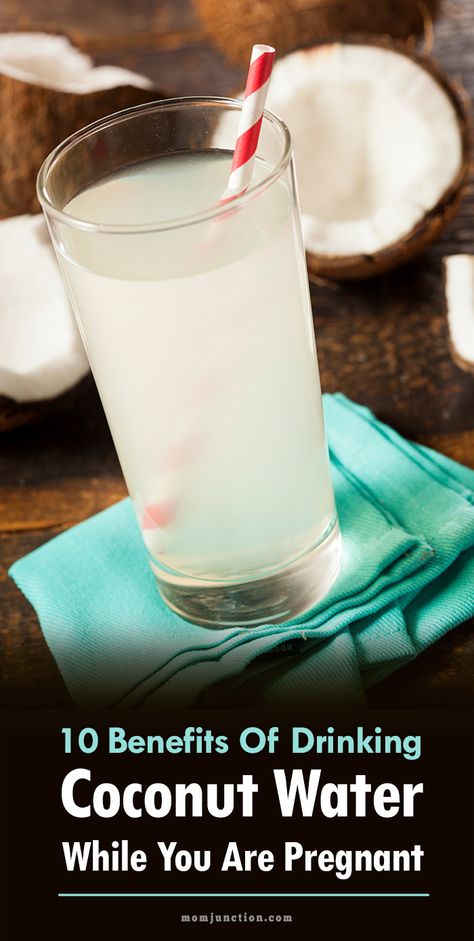 This protective function is especially important at the stage of embryo formation. In addition, vitamin E helps to normalize the hormonal balance of the body. In the early stages, it participates in the formation of the placenta, and also protects against abortion. The dose of vitamin E during pregnancy is 15 mg.
This protective function is especially important at the stage of embryo formation. In addition, vitamin E helps to normalize the hormonal balance of the body. In the early stages, it participates in the formation of the placenta, and also protects against abortion. The dose of vitamin E during pregnancy is 15 mg.
Vitamin E is found in vegetable oils, not less than this vitamin in lettuce, tomatoes, rose hips, parsley, spinach and peas. Some vitamin E is found in meat, eggs and milk.
Magnesium
Magnesium is involved in all metabolic processes, helps to cope with stress, normalizes the functioning of the cardiovascular system and blood pressure, and keeps blood vessels in good shape. Due to a lack of magnesium in the body, cramps in the muscles (usually in the calves) may appear. And since the uterus is also a muscular organ, with a lack of magnesium during pregnancy during gestation, the excitability of the myometrium increases, which leads to active uterine contractions. Therefore, with hypertension and the threat of abortion, magnesium is often prescribed.
Therefore, with hypertension and the threat of abortion, magnesium is often prescribed.
Magnesium is found in whole grains and whole grain breads, figs, almonds, seeds, dark green vegetables and bananas.
iodine
Pregnant women are usually prescribed iodine in the first trimester. Up to 16 weeks of pregnancy, the development of the child and the laying of all its organs and systems are "under the protection" of the mother's thyroid gland. And if a woman has little iodine, then this means that some system or organ of the baby may suffer. And even when the child’s own thyroid gland is formed and starts working, she can still take iodine only from the mother’s body. Its daily dose is 250 mg per day.
Iodine is most easily obtained from seafood and sea or iodized salt. A lot of iodine is found in sea fish, seaweed, squid, persimmon, feijoa, dates, dried figs, dairy products and meat. However, iodine is destroyed by temperature effects, which means that after heat treatment, the amount of iodine in the products decreases sharply.
Iron
Iron is needed primarily for the prevention of anemia. After all, it is part of hemoglobin, which carries oxygen throughout the body of the mother and child. In addition, iron is involved in protein synthesis, which is involved in the formation of muscle tissue. And iron deficiency can lead to increased uterine tone. The average daily dosage of iron is 30–60 mg. In some cases, if the woman's iron supply was initially reduced, the dosage may be higher.
Meat contains iron, especially in veal, turkey, hare, pork and beef. There is iron in plant foods, but from there it is absorbed much worse. Iron is best absorbed when taken together with vitamin C.
If a pregnant woman eats properly and varied, eats a lot of fruits and vegetables, then she may not need an additional complex of vitamins for pregnant women. It may be necessary to drink some vitamins separately, but this should be determined by the doctor. If, before pregnancy, a woman had signs of vitamin deficiency, she eats incorrectly or poorly, then multivitamins cannot be dispensed with.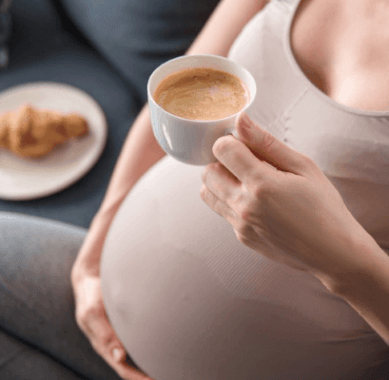
Inset
Vitamin B 9 (folic acid) found in animal liver, spinach, asparagus, lentils, Brussels sprouts, beans and wholemeal flour. However, it is absorbed very poorly from food, no more than 50%. That is why it is prescribed to almost all pregnant women
At one time, our body will not be able to absorb more than 500 mg of calcium. Therefore, you should not try to get the entire daily norm of this trace element in one meal. Try to eat foods containing calcium in small portions several times a day
To increase magnesium concentration in tissues, vitamin B 6 (pyridoxine) is needed, which facilitates its absorption and acts as a conductor of magnesium into the cell. Therefore, magnesium and vitamin B 6 are often prescribed together.
Make an appointment
to the doctor - Albitskaya Elena Vladimirovna
Lapino-1 Clinical Hospital "Mother and Child"
Diagnostics
By clicking on the submit button, I consent to the processing of personal data
Attention! Prices for services in different clinics may vary.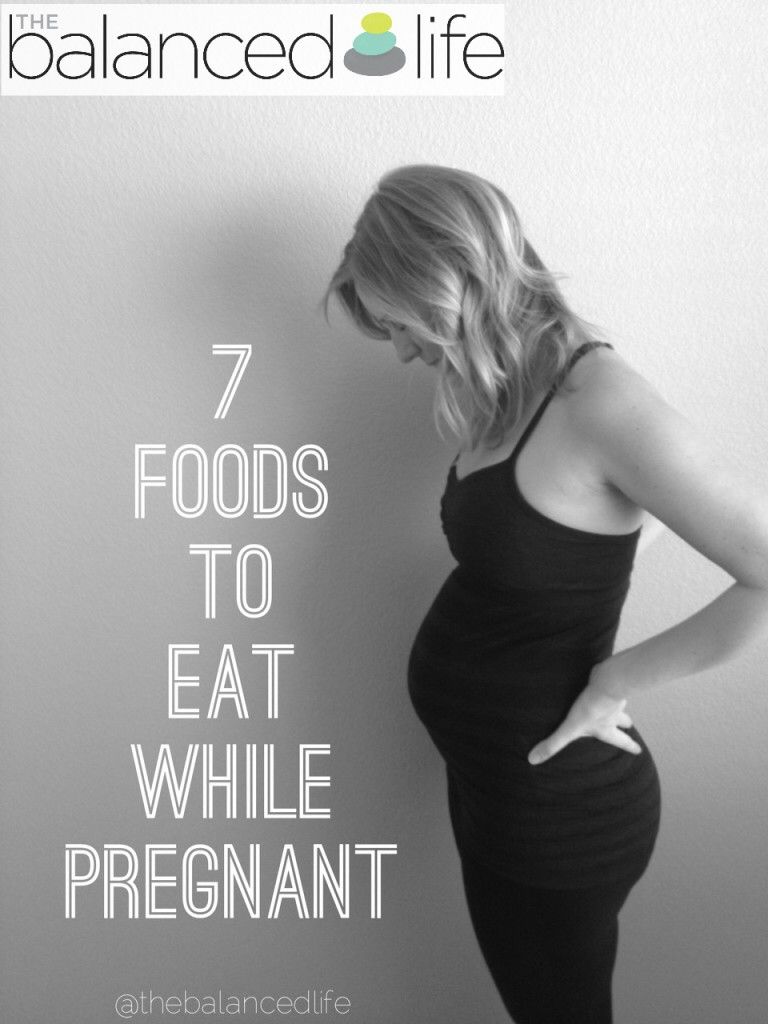 To clarify the current cost, select a clinic
To clarify the current cost, select a clinic
Clinical Hospital MD GROUPClinical Hospital Lapino-1 "Mother and Child"Clinic KG "Lapino" in Odintsovo (branch)Clinic "Mother and Child" Khodynskoye PoleClinic "Mother and Child" KuntsevoClinic "Mother and Child" SavelovskayaClinic "Mother and Child" Yugo-ZapadMother and Child Clinic NovogireyevoMother and Child Clinic Lefortovo
All directionsSpecialist consultations (adults)Specialist consultations (children)Laboratory of molecular geneticsGeneral clinical examinationsProcedural roomTelemedicine for adultsTherapeutic examinationsUltrasound examinations for adults
01.
Specialist consultations (adults)
02.
Specialist consultations (children)
03.
Laboratory of molecular genetics
04.

